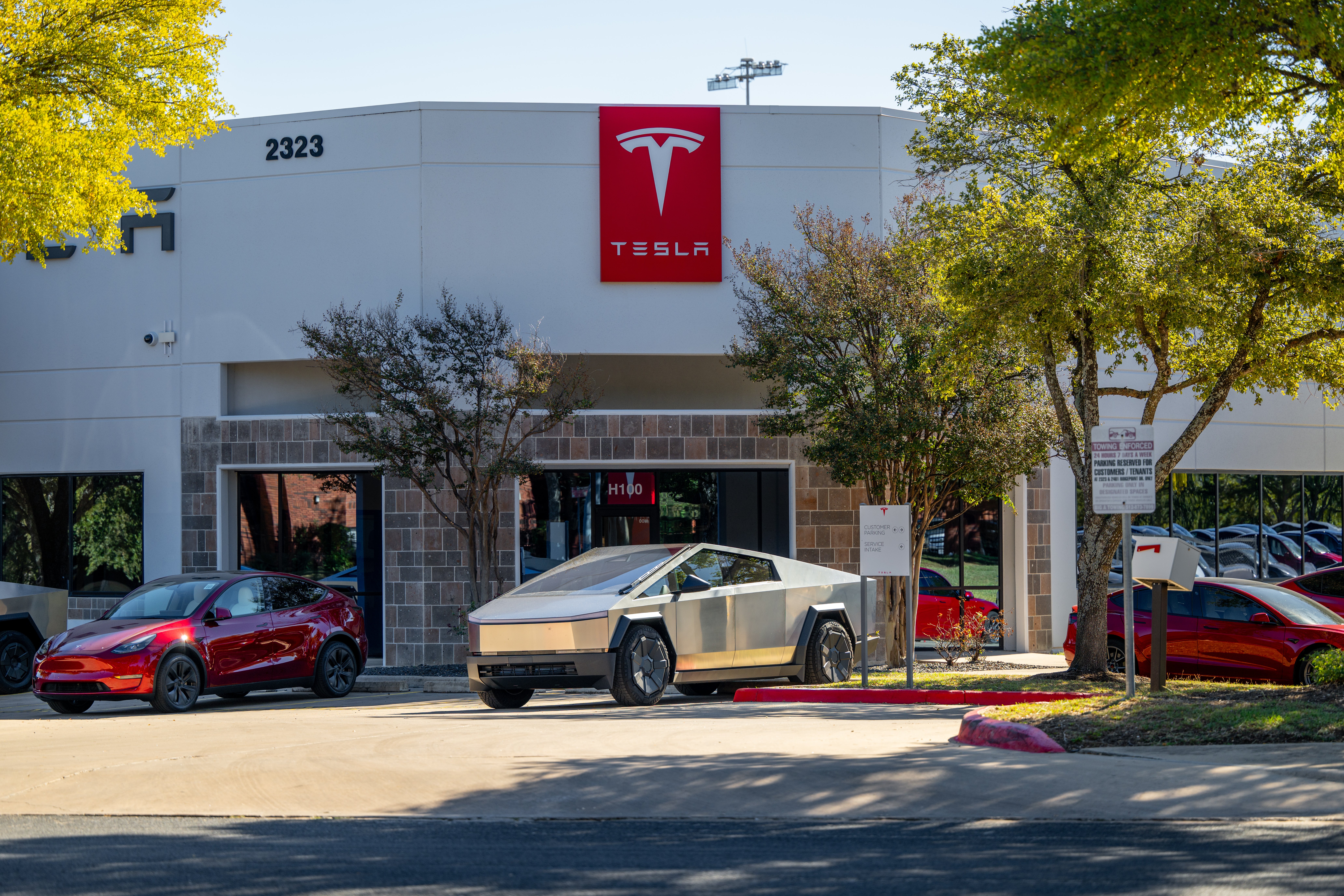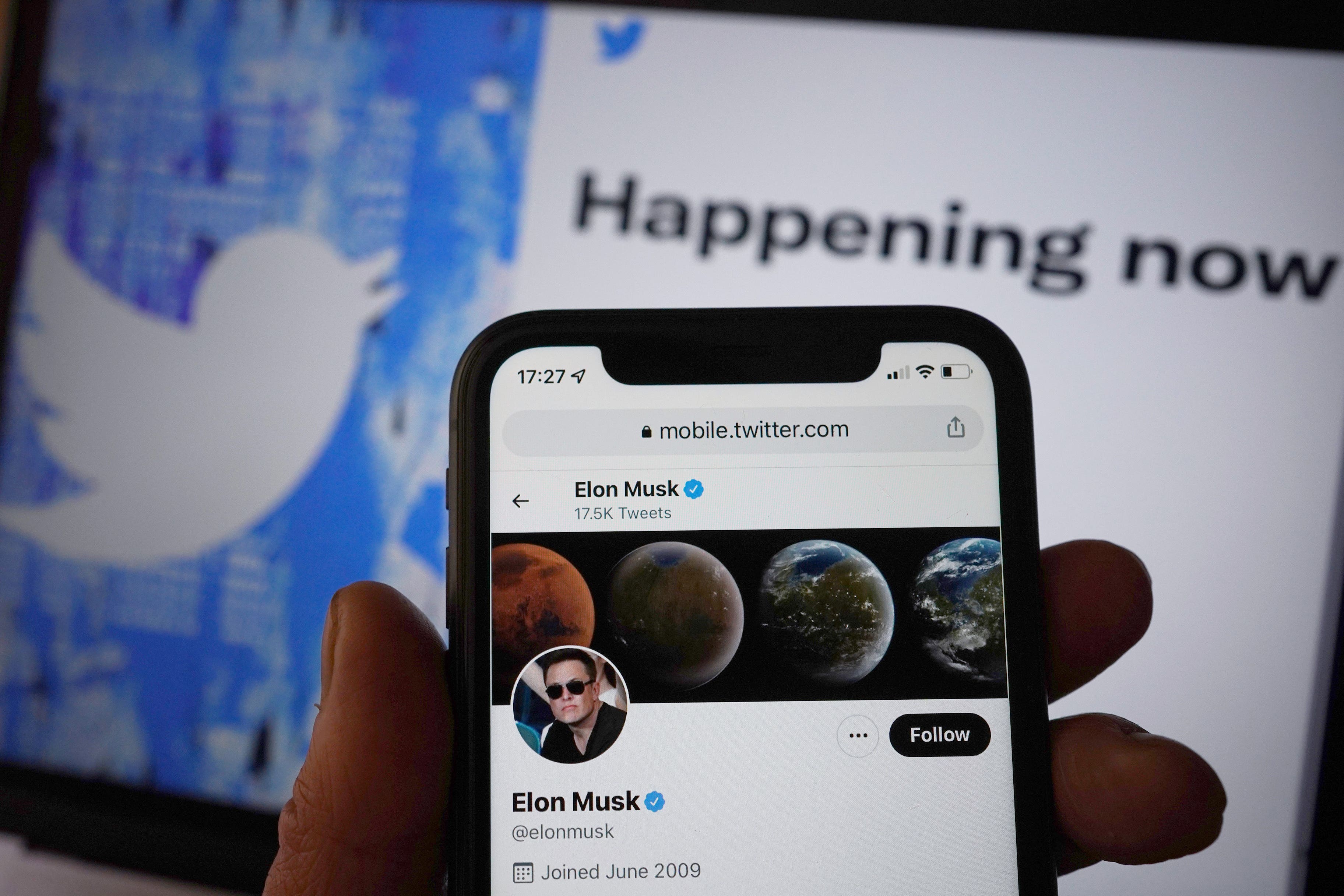When Elon Musk makes a claim, it's often wise to mentally add a little note on the end: citation needed.
After volunteer editors updated Musk's Wikipedia page to reflect his “alleged Nazi salute” at Trump's inauguration, the world’s richest person demanded an immediate boycott of the non-profit foundation.
Musk has been skirmishing with Wikipedia for awhile — in October 2024 he offered a $1 billion donation to change the site's name to "Dickipedia"— but this latest attack fits into a long and worrying pattern of Musk trying to control what people see and hear about him and his businesses.
“He is the world’s leading free speech hypocrite,” Seth Stern, director of advocacy at the Freedom of the Press Foundation, tells The Independent. “And his actions with respect to Wikipedia are further evidence of that.
Musk tolerates free speech — as long as he likes the viewpoint or agrees with the political perspective, notes Stern.
Defund Wikipedia until balance is restored! https://t.co/CIszNP5Pvc
— Elon Musk (@elonmusk) January 21, 2025
"When that's the case, he is highly tolerant of inaccuracy, misinformation, criticism, even hate,” he says. “But when the subject of the speech is himself, or his agenda, his objectives, and his companies, it's quite the opposite.”
And Musk responds viscerally. "Any misstatement, any detail that he doesn't find to be entirely precise — sometimes details that that are entirely precise, but that he would prefer not be expressed — is the basis for a lawsuit, an account removal [on X], or another form of censorship,” Stern says.
Feuding with his critics
In 2016, Musk's electric car company Tesla took an unusual step in corporate PR: singling out a critical journalist by name and accusing him of "fabricating" a story.
This soon become a common pattern for journalists covering Tesla. Someone would write something that Musk didn't like. Musk would blast them publicly, and then his faithful would swarm them.

Inside the company, Tesla employees were allegedly fired for reporting racist harassment, raising safety concerns, reviewing company products in their personal time, and disagreeing with Musk.
At one point Musk reportedly even called up a venture capitalist who had written a critical blog about Tesla and personally cancelled his pre-order for a new car.
In China, the company has reportedly asked the government to use its censorship powers to block critical social media posts, as well as filing or threatening defamation lawsuits against citizens and online influencers who raised safety concerns.
Yet it was Musk's $44 billion buyout of Twitter, later renamed X, that really set off a spree of speech suppression.
"I hope that even my worst critics remain on Twitter, because that is what free speech means," declared Musk in April 2022.
Wokipedia has a possibly terminal case of the woke mind virus. Reddit too. https://t.co/yjfzE6lEyw
— Elon Musk (@elonmusk) October 26, 2024
Within weeks of his takeover, around two dozen Twitter employees were reportedly fired for criticizing Musk. Since then, X has briefly or permanenently suspended the accounts of journalists, activists, public records database administrators, and a student who tracked his private jet based on publicly available flight records.
X has also frequently blocked or restricted links to stories about Musk's companies and also to rival services such as Substack and Mastodon.
Musk, Tesla, and X have been asked for comment for this article but did not respond before deadline.
'He made an example of us'
Musk soon began a series of legal attacks against non-profit groups who had provoked his ire. First, in July 2023, his company sued the Center for Countering Digital Hate (CCDH), which had published reports claiming that hate speech was rising on X, which the platform disputed.
Then it filed a "thermonuclear" lawsuit against Media Matters for America (MMfA), a left-wing campaign group that had caught the social network showing corporate advertisements alongside antisemitic posts.
In 2024, X also sued a little-known non-profit called the Global Alliance for Responsible Media (GARM), which had been set up by the advertising industry to help companies avoid their ads being seen next to illegal or harmful content. Within days, the group forced to shut down.

To CCDH's CEO Imran Khan, these suits betrayed "a toddler-like conception of free speech" on the part of the mercurial multi-centi-billionaire.
"Musk sees accountability as a hostile act," Ahmed tells The Independent. "There's no such thing as a critical friend to Elon Musk.”
The CCDH lawsuit was ultimately thrown out by a California court in March 2024. Ahmed says the lawsuit did not intimidate CCDH, and actually helped it attract more donors, which helped it recoup the nearly $1 million spent in legal fees.
Others have not been so fortunate. MMfA was sued not in California but in conservative north Texas. Republican politicians followed up by launching state investigations of MMfA, with some even claiming it should be probed for "criminal" acts or that its staff should be imprisoned.
😂
— 🇺🇸 Mike Davis 🇺🇸 (@mrddmia) November 10, 2023
I’m ready to serve.
And I’m adding @MMFA’s @ehananoki to my 6 lists.
He can share a cell with @MattGertz.
(Don’t worry. We’ll put them in the women’s cell block. So they don’t get beat up as often.) https://t.co/WAZ5t4KqJr pic.twitter.com/TBz3qPR9M8
In a post on Bluesky this week, MMfA's director Angelo Carusone suggested that the saga had deterred other non-profits from criticizing Musk's salute.
"He has made an example of Media Matters. We’re still standing, but oof," Carusone said. "The word got out. People see and they’re afraid. No excuse. But his strategy of making an example of us to chill speech critical of him worked."
According to Stern, such lawsuits by a man with neverending funds are intended to "bleed his opponents dry", and their purpose is "not to win but to harass and discourage."
"You can't have free speech if speakers who exercise that right are subject to enormously expensive litigation," Stern says.
'Authoritarians go after truth'
Today Musk is a government official in waiting, with the ear of the president.
Donald Trump himself has his own history of suing and threatening media outlets over critical stories — sometimes even calling for them to be shut down. Some of his allies have also suggested criminal prosecution.

Ahmed believes that Musk's government position will make it more difficult, not less, to go after his critics, because the First Amendment forbids the government from interfering with free speech.
Yet Stern fears he may find ways nevertheless. “It’s difficult to predict how Musk might wield that power,” he says. “I don’t want to speculate, because I don’t want to give the guy any ideas. But it’s fair to say he’s got various weapons in his arsenal.”
I think Elon is unhappy that Wikipedia is not for sale. I hope his campaign to defund us results in lots of donations from people who care about the truth. If Elon wanted to help, he'd be encouraging kind and thoughtful intellectual people he agrees with to engage.… https://t.co/qZ8TJ08V3L
— Jimmy Wales (@jimmy_wales) January 21, 2025
For others, there may be something broader at stake.
Wikipedia has plenty of problems: as a crowd-sourced encyclopedia it is subject to vandalism, activist campaigns, scheming or warring editors, and inaccuracy. Some recent research suggests it has a left-wing bias when covering U.S. politics.
Nevertheless, compared to big social networks such as Facebook, it proved resilient against Covid-19 misinformation and tends to score respectably in studies of its accuracy. As it is run by its users and maintained by a non-profit, an individual billionaire would struggle to swoop in and take control — although they could try.
"Wikipedia has been one of the very last corners of the internet that has a commitment to fact-checking and truth," says Nora Benavidez, director of digital justice and civil rights at the non-profit Free Press. "I worry that a Musk acquisition could derail that."
Indeed, Benavidez thinks that may be the point. She sees Musk as part of a "rapid and consolidating broligarchy" that has fallen into place around Trump — the wealthy tech barons who sat in the front row at his inauguration, and who between them already control X, Facebook, Instagram, Google, YouTube, Amazon, Amazon Prime Video, and the Washington Post.
"One of the earliest red flags of authoritarianism is going after truth, going after reality, making it hard for people to identify what's real or fact-based," says Benavidez. "And that's what we're seeing play out here in real time."







